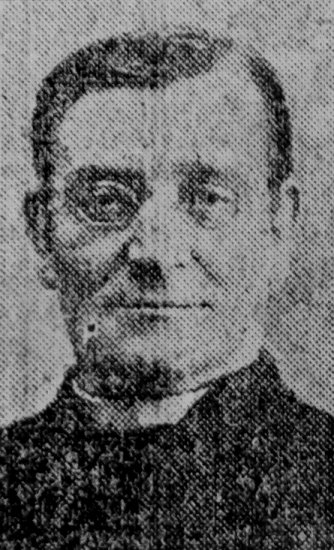Mexborough and Swinton Times December 20, 1929
Back To Sheffield
Rector of Wombwell become Vicar of Attercliffe.
40 Years’ Ministry.

The Rev. Canon S. T. O. Smith M.A., rector of Wombwell, has been appointed vicar of Attercliffe, and thus returns to the city after eight years’ ministry .in Wombwell.
Canon Smith is now in his fortieth year of ministerial service, and apart from the term at Wombwell has spent the whole of it in Sheffield. When he succeeded the Rev. James Cropper, M.A., at Wombwell, in May, 1921, the esteem in which he was held in Sheffield was indicated by a memorable farewell gathering .of his Walkley parishioners, and the number of presentations then made to him, which included a cheque for 100 guineas. During his twenty years as vicar of Walkley he built up a solid body of loyal church people, and built the parochial hall and St. Saviour’s Mission Church there.
Similarly at Wombwell lie has exerted his attractive personality, considerable gifts, and great energy and organising skill, to the redecoration and restoration of the Wombwell Parish Church. And there too, he has built up a congregation of devoted workers who have made the Church in Wombwell a powerful influence in the life of the town. Further to extend that influence, and to exercise the public spirit which is one of his characteristics. He served for several years on the Barnsley Board of Guardians.
On a memorable evening in November 1927, the Bishop conducted a confirmation service in the Wombwell Parish Church, towards the end of his address made the first public announcement of the Rector’s appointment to an honorary calorie in Sheffield Cathedral. That appointment was a popular one throughout the diocese, for Canon Smith was active and prominent in a much wider sphere than the parish of Wombwell. The clergy of the diocese had honoured the Rector of Wombwell with election as their Proctor in convocation and as a member of the National Church Assembly.
Canon Smith has taken a keen interest in education in Wombwell, particularly as a member of the district Education Soap Committee and as manager of the Hemingfield Church School. He has developed excessively the mission work at Broomhill, and Saint Georges Jump, where church life has more vitality than ever before. Canon Smith as a doctor the policy of keeping a good start of curates, and he will leave the district exceptionally well supply in that respect.
To this policy is due a good deal of the progress made during Canon Smith’s ministry.
But perhaps he leaves his most lasting memorial in the permanent beautification of the Parish Church. During his ministry the whole fabric, which was badly damaged, and indeed, endangered, by subsidence due to coal workings, has been thoroughly overhauled, and the interior completely restored and redecorated to its vast improvement and two successful bazaars, and the general improvement in the Church finances brought about by Canon Smith’s methods, leave all these improvements without the usually accompanying debt. The Bishop and other distinguished visitors have almost invariably commented on the improvement that has been affected.
Perhaps the most notable improvement of all was the erection of the beautiful little memorial chapel, which has the advantage of being usable for ordinary services, while still retaining the necessary qualities of intimacy and comfort for smaller devotional gatherings. The finances of the Church have been put on a perfectly sound basis by Canon Smith who has brought effective system into the important department of the work, as to all others; and now the accounts are presented annually in a concise and easily understandable form which makes the position clear at a glance.
Canon Smith’s outstanding quality is his genius for organisation: he has the happy knack of getting the best out of staff and workers. Part of this knack is his unfailing sense of humour, which can brighten up the most dismal gathering and infuse vitality into the most prosaic proceedings.
Finally Canon Smith is a refreshing and vigourous speaker who is always worth listening to, and whose pulpit utterances, while full of expository power, have never lacked the courage of provocation when some public question in which felt the Church should have a voice was at issue.
Wombwell will lose a notable figure and an enlivening influence, not only in its religious life, but in its civic Tile in its entirety. And Sheffield will regain an invaluable worker whose heart, with the part of his working life, was given to the city.